- Research
- Research Centers
- Journals
- Admission
- Introduction
- Programs
- Application
- Alumni & Giving
- Alumni Club
- Giving
The International Forum of BFSU Co-hosted Confucius Institutes, themed "Promoting Language and Cultural Exchange, Enhancing Mutual Understanding across Civilizations", opened in Beijing on Dec 6.
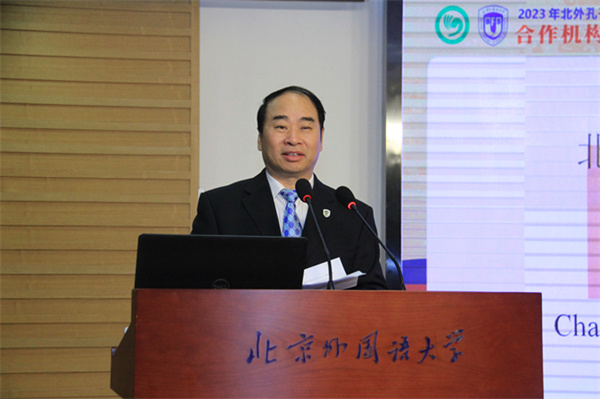
Wang Dinghua, secretary of the CPC BFSU committee, speaks at the opening ceremony. [Photo/bfsu.edu.cn]
In his address at the opening ceremony, Wang Dinghua, secretary of the CPC BFSU committee, said that BFSU and its partners have built a solid foundation for cooperation and mutual benefit among Confucius Institutes over the past year, and have enhanced talent development and innovated exchanges and collaboration.
Wang said that he hopes to leverage the construction of Confucius Institutes as an opportunity to strengthen international understanding, cultural inheritance and mutual learning among civilizations. He views Confucius Institutes as a significant driving force in building a community with a shared future for mankind, safeguarding world peace and development, and advancing the progress of human civilization.
To promote mutual learning among world civilizations, Wang urged Confucius Institutes to help students enhance international understanding while teaching Chinese, and facilitate cultural exchanges between China and foreign countries.
He encouraged Confucius Institutes to connect BFSU with institutions where they are located, participate in country and area studies, and support the construction of a community with a shared future for mankind and global civilization practices.
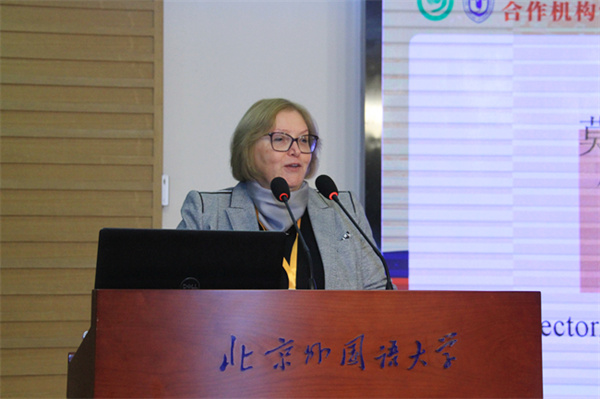
Irina Kraeva, rector of MSLU, speaks at the opening ceremony. [Photo/bfsu.edu.cn]
Irina Kraeva, rector of Moscow State Linguistic University (MSLU), highlighted MSLU's achievements in teaching foreign languages, especially Chinese, and shared the outstanding performance of the Confucius Institute at the university in hosting HSK and HSKK exams.
The number of examinees has grown from 400 to 5,000 annually, and it is expected to exceed 6,000 this year, said Kraeva.
The rector expressed gratitude for the efforts of both Chinese and foreign staff at the Confucius Institute, hoping that it will continue to organize high-level Chinese language exams.
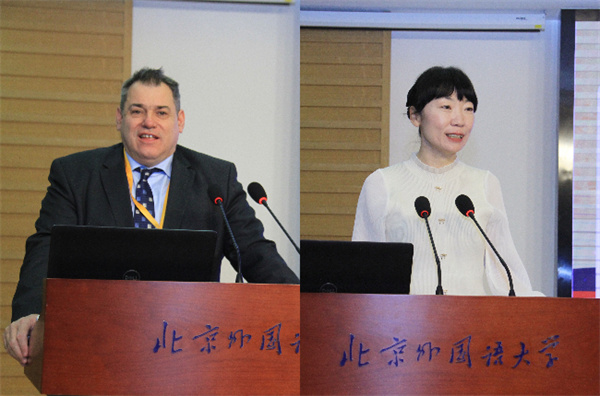
Hamar Imre (L), vice-rector of Eötvös Loránd University, and Jiang Ying, director of the Confucius Institute at Hankuk University of Foreign Studies, speak at the opening ceremony. [Photo/bfsu.edu.cn]
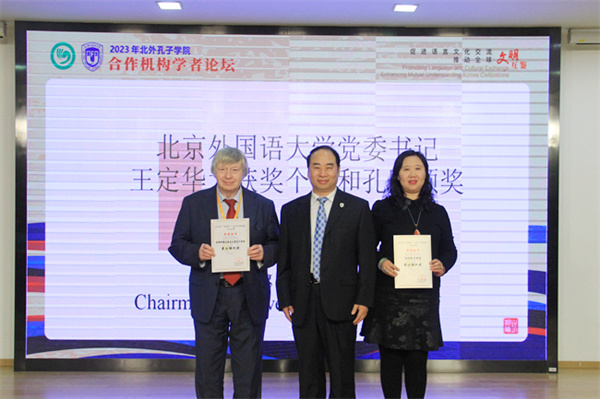
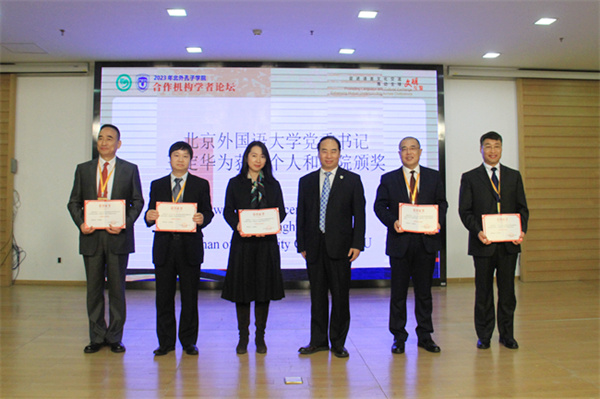
Wang Dinghua presents certificates to the two Confucius Institutes that won the Group Award in the SEE Love - My China Story Vlog competition, as well as the five Chinese directors who earned the title of Outstanding Chinese Director for the 2022-23 academic year. [Photo/bfsu.edu.cn]
During the forum, representatives from Confucius Institutes summarized their annual work and shared key projects for case studies.
As of October 2023, BFSU has established 23 Confucius Institutes and independent Confucius Classrooms in 18 countries across Asia, Europe and the Americas. Among them, nine institutes were built in countries involved in the Belt and Road Initiative, seven are demonstration institutes, two are culture pilot institutes, one is for academic research, one is for business studies, and one is for publishing studies. Eighteen institutes have been in operation for more than 10 years.
This year, Confucius Institutes co-hosted by BFSU have a total of 20 Confucius Classrooms, 152 teaching points and 454 cooperative institutions. The number of students at these Confucius Institutes totals 33,200, including 14,063 beginners. Participants in various Chinese proficiency exams reached 10,754.
This year, these institutes held 881 activities, including 724 cultural events and 157 academic events, attracting 157,742 attendees. A total of 460 full-time and part-time staff have worked on the front lines of teaching and management.